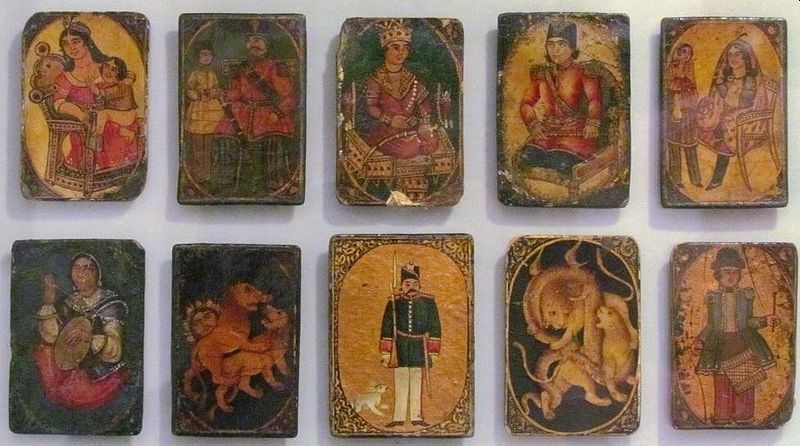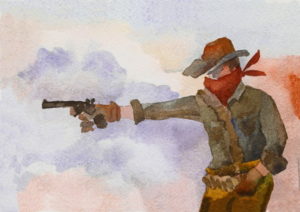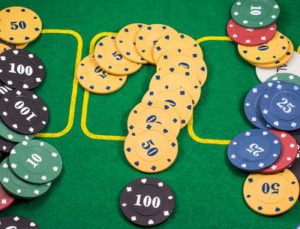 In order to find out where poker gets its name from, we first need to understand where the world’s most popular card game originates from.
In order to find out where poker gets its name from, we first need to understand where the world’s most popular card game originates from.
While the game’s origins are disputed and there are a number of theories, the history of poker is indeed hard to guarantee but looks to be the result of numerous international influences.
Poker’s origin story depends largely on whether you consider the main point of the game to be about a fun pastime or a way to make money.
If, for you, it’s the first of those, i.e. gameplay, then the game could be derived from a Persian game called As-nas.
As likely as being the beginning of poker as As-nas is, and this is a widely held theory, historians have of late challenged this, pointing instead to other games such as the French game Poque, or Poca from Ireland or even the German game called Pochspiel as being the root of the game.
See also, Brag from the UK and the Spanish game Primero.
What is As-Nas?

Returning to As-nas for a moment, the game was played using a deck of only 20 card and five ranks.
From highest to lowest, these were as (ace), shah (king), bibi (queen), serbaz (soldier) and the couli (dancer).
Each player was dealt five cards and the high hands were basically the same ones we use today, but without straights and flushes.
Of course, the best hand won.
Betting was a feature of As-nas but because all of the cards are dealt at the start of the game there were no more cards to be drawn so the game was really all about deciding whether to bet conventionally or bluff.
As for the game’s popularisation, that can largely be attributed to the US, specifically the advent of riverboat gambling on the Mississippi River in the 1700s and 1800s.
This is when the other games evolved into the game we know and love today.
The Old West
 As well as playing with a deck of 20 cards just as they would with As-nas, gamblers would also sometimes play games with 52 card decks as well.
As well as playing with a deck of 20 cards just as they would with As-nas, gamblers would also sometimes play games with 52 card decks as well.
Initially, it was Stud that was the most common form of poker, but that was obviously over taken at some point by Texas Hold’em and Omaha.
Many of the people playing on the riverboats and in the gambling houses were also attracted to prospecting and were part of the gold rush which led to poker spreading west across the United States.
Because of this, it became a central feature of wild west culture and continued to evolve with new hands being added such as straights and flushes being introduced.
Eventually, in 1970, the World Series of Poker (WSOP) was introduced which surged the popularity of poker which then got another boost with the global online poker boom in the new century,
How Poker Got Its Name
 The game was first called poker in the early 19th century with the most likely source of its name deriving from the French theory.
The game was first called poker in the early 19th century with the most likely source of its name deriving from the French theory.
This is likely given that one of the states where poker was popular was Louisiana, a French territory at the time.
If we run with the German theory, however, there is still some substance to it.
This is because the German word pochen literally translates as to bluff or brag, meaning the word poker essentially means to bluff, one of the main elements in the game.
It is likely then that the game started in Persia before making its way to Europe where elements of the game were developed in Germany, France, Great Britain and Spain and then exported to the new world where it took off.
Today, the most famous poker variant is Texas Hold’em whose name is a lot clearer.
This game can be traced back to Robstown, a small town just outside of Corpus Christi, Texas.
The game was invented around 1925 and quickly spread throughout Texas finally breaching the borders of the state in 1967 when Texan poker legends Doyle Brunson, Amarillo Slim, and Crandell Addington took the game to Vegas.
